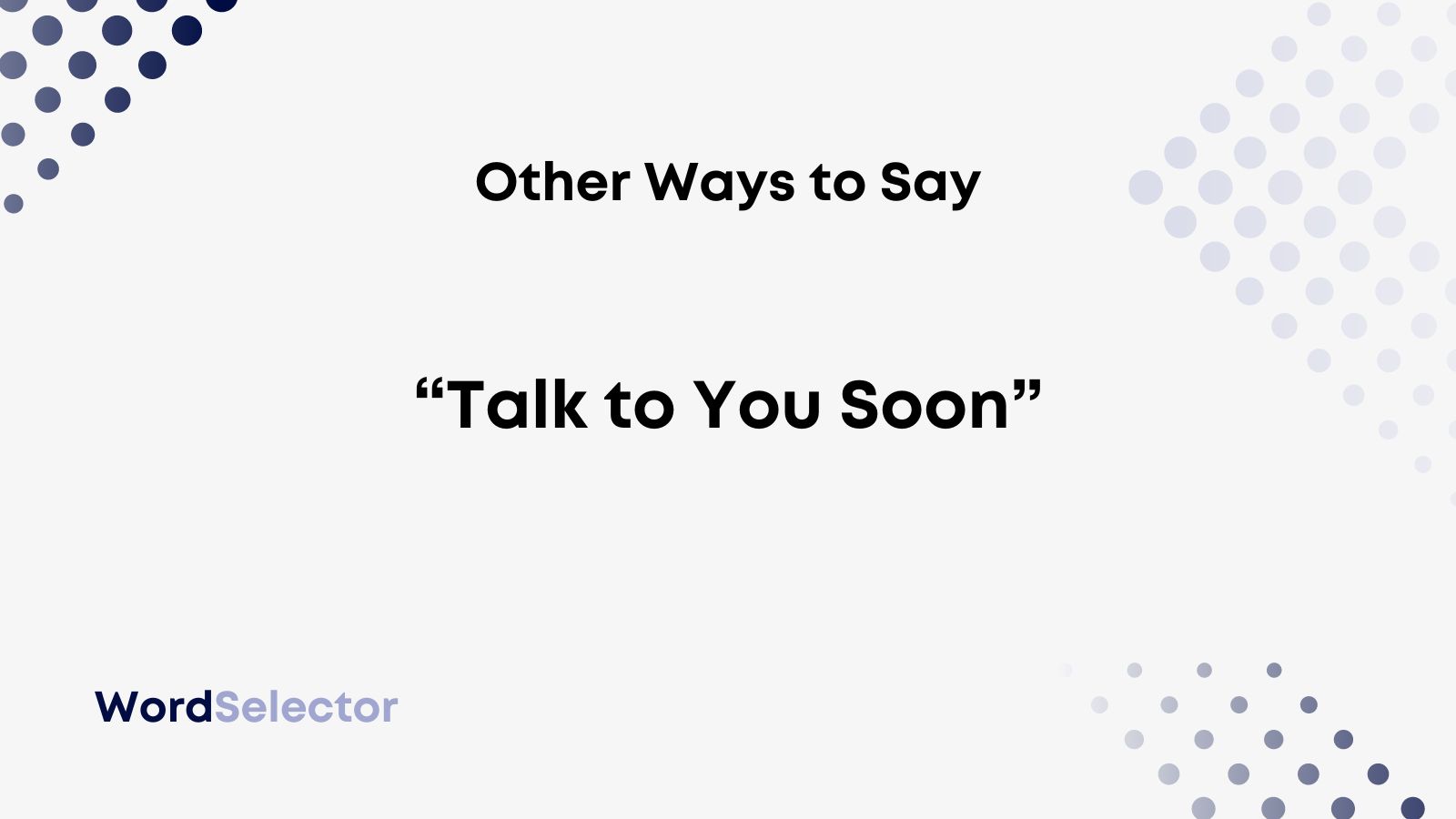Are you looking for a way to say “talk to you soon” professionally? Perhaps you’re worried it’s slightly too conversational for a business email.
Well, there are plenty of alternatives available. This article will explore some of the best ones you can use to mix up your writing.
Other Ways to Say “Talk to You Soon”
- I look forward to hearing from you soon
- See you later
- Talk later
- Talk to you later
- Speak again soon
- I look forward to speaking with you again
- I’m sure we’ll speak again soon
- Let me know when you want to talk
- Talk again soon
- I look forward to hearing your answer
- I’m sure you’ll have an eye-opening response
- Text me!
KEY TAKEAWAYS
- “Talk to you soon” works well in conversational contexts, though it’s best to avoid it formally.
- “I look forward to hearing from you soon” is a great email closing statement in a professional context.
- Try saying “see you later” in conversational situations to mix things up.
You can keep reading to learn more about the best synonyms here. We’ve explained all you need to know about the most useful phrases in different contexts.
You may also skip to the final section to learn more about “talk to you soon.” After all, you will learn whether it’s correct and appropriate in formal instances.
I Look Forward to Hearing From You Soon (Formal)
“I look forward to hearing from you soon” is a great formal synonym. You can use it in professional emails when you want to say goodbye to someone. It implies that you expect to hear from them later.
Generally, this phrase works best to end an email. You can use it when emailing employees and asking them to reply to you with an update. It will work best when you’ve given someone a reason to reply since “look forward” implies that you expect something from them in the future.
We recommend using “I look forward to hearing from you soon” over “talk to you soon” in business emails. It’s much more respectful and professional. The tone works a lot better in formal contexts.
Here is an example to show you how it works:
Dear Holly,
I’m sure we can work a way around this. Let me know if you come up with any ideas before I do.
I look forward to hearing from you soon,
Benjamin Walker
See You Later (Informal)
“See you later” is a great option if you want a more conversational alternative. It shows that you plan on seeing someone soon, but you don’t know exactly when.
Typically, you’ll use “see you later” when messaging friends. It shows that you plan to meet up with your friend again. “Later” might apply to later in the day, later in the week, or later in general (implying that you haven’t set a specific time to meet again).
We don’t recommend using “see you later” in formal contexts. It’s best as an informal phrase, so you’re better off using a different alternative.
However, in casual situations, both “see you later” and “talk to you soon” are interchangeable. You can switch between them in informal writing to keep things interesting.
Check out these examples to show you how it works:
I’ll see you later, Alex! I’m still waiting for you to tell me what your plan is for the next few weeks.
See you later! Let me know if there’s anything else you want to do before we return to work.
Is It Correct to Say “Talk to You Soon”?
“Talk to you soon” is correct. It shows that you plan on seeing someone again soon to discuss further matters. Generally, it’s more informal than formal, but it can work in a few formal emails.
You can end an email with “talk to you soon,” but only when emailing coworkers or friends. Since it’s not very formal, it wouldn’t make sense to write “talk to you soon” at the end of an email to a boss or client.
Here are some other variations you can use:
- I will talk to you soon
- Look forward to talking to you soon
- Hope to talk to you soon
Incidentally, you might also come across “speak with you soon.” It’s a similar phrase, but you have to use “with” as the preposition instead of “to.”
“Talk” uses “to” rather than “with.” As long as you remember that difference, you’ll be writing both “speak with” and “talk to” correctly.
Don’t forget to bookmark this page to remind yourself of the best synonyms. That way, you can have a few options ready to use instead of “talk to you soon.”

